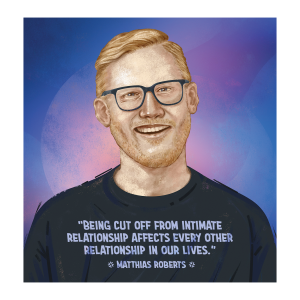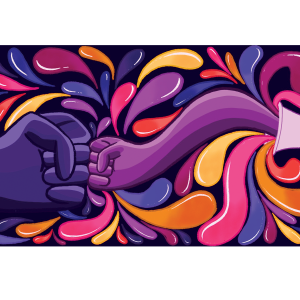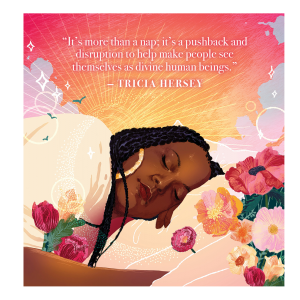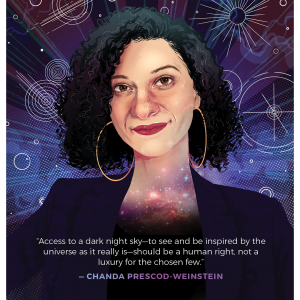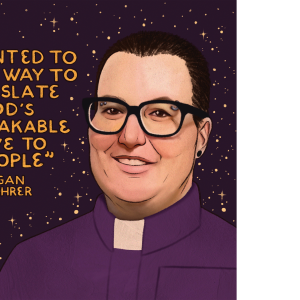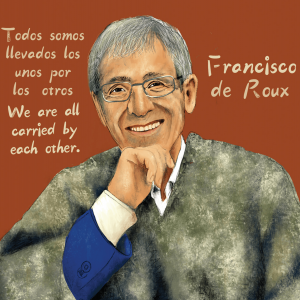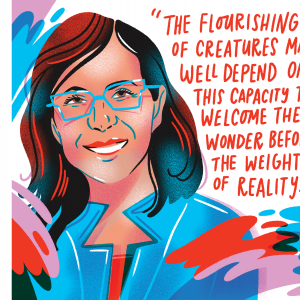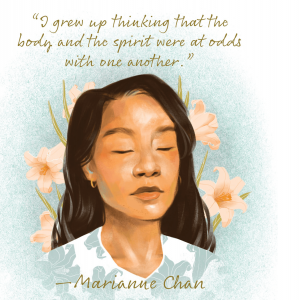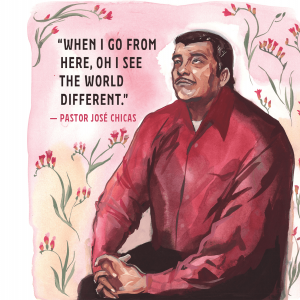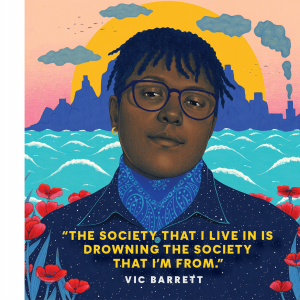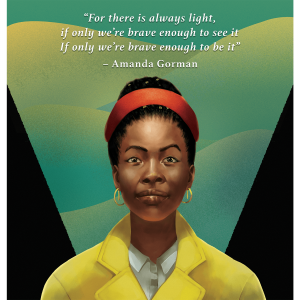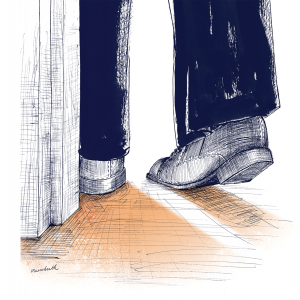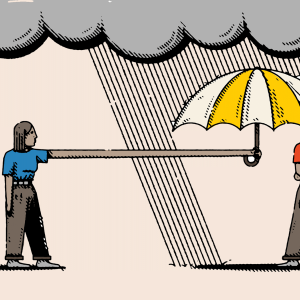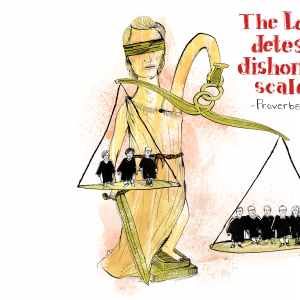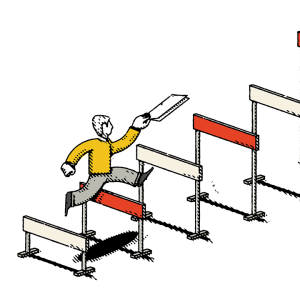
Jim Rice is a former editor of Sojourners magazine. From 1981 until his retirement in 2024, he served in a variety of roles at Sojourners, including as editor and managing editor of Sojourners magazine; director of Sojourners Outreach Ministry; and coordinator of Sojourners Peace Ministry.
Prior to joining Sojourners, Rice was an organizer for the Center for Peace Studies at Georgetown University. He was founder and co-director of Pax Christi: Washington's Peace Education Program and producer of the multimedia “Anatomy of the Nuclear Arms Race.” In addition, Rice served on the founding National Committee, Executive Committee, and Direct Action Task Force of the Nuclear Weapons Freeze Campaign, and he was treasurer of the Nuclear Weapons Education Fund. Before moving to D.C., Rice was the hunger action coordinator for the Oregon Center for Peace and Justice in Portland, Ore., and he spent two years as a member of the Jesuit Volunteer Corps. He was a member of the national advisory board for Evangelicals for Middle East Understanding and a research fellow for the New Media Project at Union Theological Seminary and Christian Theological Seminary.
Rice, a graduate of Seattle University, is a native of Richland, Wash., the bedroom community of the Hanford Nuclear Reservation. Rice was a long-time member of Sojourners Community, an intentional Christian renewal community located in inner-city Washington, D.C. He and his wife, Dawn, have two children and two grandchildren. He is a member of Hyattsville Mennonite Church outside of Washington.
Selected Sojourners articles by Jim Rice
- 'Simple is the New Chic' In John Carr's view, Pope Francis is already shaking up the Catholic Church — and the best is yet to come.
- The Party of No Compromise GOP attempts to circumvent the health-care law range from the inane to downright bullying.
- Our Dolls, Our Selves Even at their best, toys like the American Girls Dolls send a mix message.
- Future's So Bright "“Given the option of paying more for dirty power or paying less for clean power, what would you take?” (May 2013)
- 'A World Without Nuclear Weapons' The way to stop is to stop. (March 2013)
- Who Speaks for Catholics? Before the election, several bishops went so far as to threaten their parishioners with eternal damnation if they voted for Obama. (January 2013)
- Our Endorsement for President The constraints on political engagement by nonprofits can be frustrating for those committed to social change. (November 2012)
- 'A Clash of Fanaticisms' We'll never reach reconciliation between Christians and Muslims until we address root causes — and take on the haters. (November 2012)
- War Crimes and Misdemeanors Hey Pres. Obama: The Nobel Peace Prize committee is calling. They want their medal back. (August 2012)
- Fairness for Whom? Fairness matters, especially for people on society’s margins — and that conviction goes far beyond tax equity to every aspect of public policy. For people of the Book, it’s much more important than politics; it’s a matter of faith. (June 2012)
- Obesity in a World of Hunger A new definition of malnutrition is emerging, as formerly developing countries are globalized into “fast-food nation” lifestyles. (May 2012)
- Are Voter-ID Laws Racist? More than 5 million voters could be affected by new Voter-ID laws and (coincidentally?) a disproportionate number of them are people of color. (April 2012)
- Occupy the Future The Occupy movement has already established its legacy — by changing the nation's conversation about wealth inequality. (March 2012)
- 'Power to the People' Renewable energy sources aren't just safer than nuclear power — they're also cheaper. (June 2011)
- 'Tear Down This Wall' An interview with Palestinian Christian activist Sami Awad on why nonviolence is key to Middle East justice. (May 2010)
- Composting with Worms Sojourners editor Jim Rice and his family have been composting with worms for more than a decade. In this video how-to, he shares 7 steps to composting with worms. (December 2009)
- The Path to Peace in the Middle East Lessons from Gaza. (March 2009)
- The Meaning of 'Life' Once thought to be in the pocket of the Religious Right, many American evangelicals today are discovering a deeper understanding of what it means to be pro-life. With Jeannie Choi. (November 2008)
- The Roots of Justice Revival During the Second Great Awakening, the fruits of conversion included social reform. (April 2008
- Loving our Neighbors Christian-Muslim dialogue raises hope — and suspicion. (April 2008)
- Being There "God's Smuggler" Brother Andrew has an odd way of breaking down barriers between Christians and Muslims. But somehow it works. (March 2008)
- Is Nuclear Power the Answer? Proponents claim that nuclear energy is the power source of the future - clean, green, and safe. Are they right? Cover feature. (August 2007)
- A Rubicon Crossed The church consensus is solidifying on the need to save the planet. (April 2007)
- Gandhi For Today How would Mahatma Gandhi confront terrorism today? And what action would the apostle of nonviolence take in response to the wars waged in the name of anti-terrorism? A review of David Cortright’s “Gandhi and Beyond: Nonviolence for an Age of Terrorism.” (December 2006)
- Hope Amid the Ruins Out of the carnage of Middle East war, can real peace ever be achieved? (September/October 2006)
- Nonviolence is Our Only Hope In the Middle East, only justice for all is justice at all. (August 2005)
- Reagan's Legacy On mourning in America. (August 2004)
- The Burden of Truth. An interview with two former CIA analysts on the lies behind the Iraq war and the heavy weight of conscience. (November-December 2003)
- "School Choice" Passes a Test. A victory for vouchers — but who wins? (September-October 2002)
- Sins of the Fathers. The deepest guilt is the church's. (May-June 2002)
- Unfoolish Consistency. Moral principles, not politics, guide the bishops. (January-February 2001)
- Core Values. The Broetjes, owners of the largest apple orchard in Washington state, had a crazy idea — to treat their workers like people. (November-December 2000)
- A Blank Check for China? China is the current battleground — as Seattle was last fall — over the rules of global trade. (May-June 2000)
- Sandino Lives! Actually, even in Nicaragua, revolutionary fervor isn't what it used to be. (March-April 2000)
- Rome Not Quite Ready for Women Priests. (November-December 1998)
- Whatever Happened to Lt. Calley? (November-December 1998)
- A Squandered Opportunity. The biggest obstacle to Palestinian Democracy may well be the emerging state's founding father, Yasir Arafat. (July-August 1997)
- Why Play? Contemplation, freedom, and the spirit of leisure. (January-February 1997)
- Bernardin's Most Important Year. (November-December 1996)
- Beyond the Nuclear Test Ban. (November-December 1996)
- Crack, Contras, and the CIA. (November-December 1996)
- With "Friends" Like These. What to do about sleazy TV? (May-June 1996)
- Justifying the Next War. The real-world effects of the just war theory. (March-April 1996)
- Into Bosnia. Mixed motives and good fruit. (January-February 1996)
- Getting Beyond Labels. Serpents, doves, and the Religious Right. (March-April 1995)
- “Cautious Optimism” on Haiti. Reconciliation in Haiti must be preceded by repentance and rooted in truth. (November 1994)
- The Armor of Righteousness. The Christian Right makes its bid for the political mainstream. (November 1994)
- Where Angels Fear to Tread. (November 1994)
- Shifting Terrain in Korea. Without Jimmy Carter's risky pilgrimage, the world would be a more dangerous place. (September-October 1994)
- Too Many People? The unavoidable reality is that where there is severe poverty, adding more people makes the suffering worse. (August 1994)
- Seeking Common Ground on Abortion. (July 1994)
- The Last Comeback of Richard Nixon. (July 1994)
- World Bank/IMF: 50 Years Is Enough. The Bank will not change its economic model without outside pressure. (July 1994)
- When Dignity Is Assaulted. Biblically based Christians must forcefully oppose this deceptive, homophobic campaign of the Far Right. (February-March 1994)
- NAFTA's Fatal Flaws. (December 1993)
- Be Like Mike? Michael Jordan or Madonna may be worth talking about, but they arguably serve no principle beyond themselves. (September-October 1993)
- Saying No to Bigotry. Why the church must stand up for gay rights. (February-March 1993)
- Cultures in Conflict. Inner-city tensions explode on the streets of Washington, D.C. (July 1991)
- SDI-Lite: Old Wine in New Skins. (May 1991)
- On The Front Lines Of Resistance. Conscientious objectors struggle for recognition. (April 1991)
- Mistakes Were Made Will the Nuclear Industry's Post-Cold War PR Campaign Work? (January 1991)
Posts By This Author
The Truth May Set Us Free, But Not Without a Struggle
THE REVISIONIST VERSIONS of Jan. 6—some would call it gaslighting—began soon after the attempted coup at the U.S. Capitol a year ago. One Republican member of Congress likened it to “a normal tourist visit.” Others called the rioters “peaceful patriots,” and still others claimed that, no, they weren’t Trump supporters at all. These apologists for sedition seemed to want people to forget that, um, it’s all on video. It quickly became painfully evident that the Jan. 6 insurrection, like the big lie it was based on, was not only an attack on constitutional processes, but on truth itself.
Is ‘Social Justice' a Heresy?
FOR ARCHBISHOP JOSÉ Gomez of Los Angeles, social justice movements are “pseudo-religions.” In a November speech, Gomez said that “today’s critical theories” are “profoundly atheistic,” that they spring from a “Marxist cultural vision,” and that they “resemble” heresies in church history. He even blamed social justice movements for “causing new forms of social division, discrimination, intolerance, and injustice.”
Black Catholic theologians and others responded to Gomez’s remarks with a petition that read, in part, “Your speech was particularly painful and offensive to Black Catholic advocates in the United States who have organized for racial justice in the face of indifference and even hostility from many white Christians.” The National Black Sisters’ Conference pointed out that “BLM is not a pseudo-religion; nor is it a ‘dangerous substitute for true religion.’ It is a movement very much in the tradition of Catholic Social Teaching.” And someone ought to introduce Archbishop Gomez to Pope Francis who, in his message for World Youth Day this fall, encouraged young people to “Arise! Uphold social justice, truth, and integrity, human rights. Protect the persecuted, the poor and the vulnerable, those who have no voice in society, immigrants.”
From the Editor: January 2022
“MACHINES, WHETHER MECHANICAL or digital, aren’t interested in truth, beauty, or justice. Their goal is to make the world a more efficient place for more machines.” So argues journalist Andrew Nikiforuk, paraphrasing Jacques Ellul’s seminal The Technological Society. “Their proliferation combined with our growing dependence on their services inevitably led to an erosion of human freedom and unintended consequences in every sphere of life.”
A Pledge to Resist Climate Change
FOR MANY OF us, this summer felt like a cosmic wake-up call about climate change. Fire, floods, hurricanes, and other cataclysmic signs of our rapidly heating planet seemed to offer near-apocalyptic warnings that we’re approaching a make-or-break point, especially for those already vulnerable because of poverty or geographic location. We almost didn’t need the scientists—such as those who produced the dire U.N. report in August—to once again sound the alarm, as they have done so many times over the past several decades, nature already having done the job in her impossible-to-ignore fashion.
Anger seems an apt response to global warming, given that the world’s climate crisis isn’t an unavoidable act of nature; rather, it’s rooted in intentional actions by people seeking power and wealth. The main perpetrators—including ExxonMobil and its GOP enablers—knew about the causes of climate change more than four decades ago and, as Scientific American put it, “spent millions to promote misinformation” and manipulate public opinion. Some might call such duplicity “crimes against humanity” and “indictable behavior.”
From the Editor: December 2021
JEANIA REE V. MOORE, a Sojourners columnist since 2019 who’s working on her doctorate at Yale, explains why she thinks Cole Arthur Riley’s @BlackLiturgies, featured in this issue, is so important, especially now: “At a time when social distancing due to the COVID-19 pandemic precluded most forms of Christian liturgy and threatened to make permanent the temporary church closures,” Moore writes, “Riley traversed the digital divide and rerouted traditional channels for spiritual expression.”
From the Editor: November 2021
THE FIRST ISSUE of what became Sojourners magazine, published 50 years ago this fall, addressed topics that are still very relevant in 2021. Volume 1, No. 1 brought a vibrant faith in Christ to a range of issues, from a theological reflection on Black Power (“Black Power functions as an ideological base of spiritual awareness for those Blacks who realize the spiritual dimension of their humanity, but who cannot identify or intimately associate with what they conceive to be a white, blue-eyed Jesus”) to a biblical critique of enculturated liberalism (“The liberal believes that the tendency for progress is incorporated into the very nature of our institutions. Thus he or she is forced to believe that continual progress is being made, even while poverty, starvation, militarism, and racism are on the increase.”)
From the Editor: September/October 2021
AS WE WORKED on the three feature articles in this issue, a common theme became clear: Each of the authors, in distinctive ways and from varied points of view, was grappling with related questions: How do we take the next steps in constructing a more just church and society? What models can help guide us as we go about the work of building something new?
In an excerpt from his new book A More Perfect Union, Sojourners President Adam Russell Taylor looks to the southern African philosophy of ubuntu—interdependence—as offering wisdom that goes far beyond one-on-one relationships to a paragon for society itself. Colleen Murphy, a law professor in Illinois and an expert in issues of transitional justice, explains why making progress on racial justice requires facing the hard realities of our past. And associate editor Christina Colón talked with pastors about how their churches will be different as they enter the post-quarantine era. In their own unique ways, each author is wrestling—as all of us are called to do—with questions of what it means to put our faith into action in an uncertain world.
From the Editor: August 2021
EVEN APART FROM the fabricated battles of the culture wars, seeking the proper balance between church and state in U.S. public life has always been a contentious matter. The Constitution prohibits governmental establishment of any religion and protects the free exercise of all religious belief. But, as Da’Shawn Mosley explains in this issue, when it comes to people of faith in public service, not all religions are created equal.
Since the Puritans’ “city upon a hill” and before, Christian imagery and beliefs have been cornerstones of American self-understanding, and the so-called “separation” of church and state has been arguably more honored in the breach, as evidenced by the nearly unbroken line of Christian presidents. Almost all Americans—including, it is hoped, most Christians—would strongly oppose a religious litmus test for public office. But the real challenge, as Mosley points out, seems to be whether those beliefs hold true when Muslims join citizens of other faiths and no faith in seeking the keys to the city on the hill.
From the Editor: July 2021
ONE OF THE most misleading words in the recent explosion of violence between Israel and Hamas is “conflict.” There is no symmetry or equivalence between desperate rocket attacks, deplorable as they are, from Hamas and the massive, disproportionate blitzkrieg by the region’s dominant military power. And, as usual, the casualties in such attacks were disproportionate as well: More than 20 times as many Palestinians, including many children, were killed, most of them predictable deaths from Israeli air force strikes on population centers in the Gaza Strip.
The bloodshed has sparked renewed calls for the “two-state solution”—the establishment of a Palestinian state alongside Israel. But, as Palestinian-American Jonathan Kuttab and American-Israeli Oriel Eisner explain in this issue, Israeli settlements have made the two-state approach impossible, and thus made clear the need for a shift in our thinking. As Kuttab writes, new thinking “would require each group to sufficiently empathize with and understand the hopes, fears, interests, and aspirations of the other group.” This spring’s violence makes painfully evident why such new thinking is urgently needed.
From the Editor: June 2021
AMAZON'S STRONG-ARM TACTICS and disinformation campaign enabled the behemoth corporation to prevent workers from organizing in Alabama earlier this year. That Amazon used its overwhelming power and wealth—and some would say lack of scruples—to undercut its employees came as little surprise to anyone who’s observed its treatment of any entity it perceives as competition. And, as Danny Duncan Collum explains in this issue, Amazon is going after public libraries the same way it attacks small businesses and union organizers—ruthlessly, methodically, and without remorse.
While Amazon’s blatant abuse of monopolistic power is plain to see, the proper response is anything but easy, even for Christians committed to putting our purchasing power where our morals are. Often, using alternatives to Amazon means paying a little more and waiting a little longer for our order to arrive. But unless people with a conscience begin to send a message in the only language Amazon understands, the possibility of change will remain remote.
From the Editor: May 2021
SOJOURNERS HAS GONE through various phases since our founding almost 50 years ago. In the earliest days, we were an intentional Christian community that sought to effect change in the world around us, including through our magazine. Now we’re a faith and justice magazine with historical roots in Christian community. There’s a difference. But among the things that haven’t changed in five decades is that for most of us here the language of “vocation,” rather than “job,” rings true, and that vocation is connected to the vision of helping to make the world a more just place.
For our new art director, Candace Sanders (see facing page), that includes the opportunity to offer a platform to artists who are too often rendered invisible, especially in some church circles. For many people, Sanders says, “it’s so hard to get your work seen—and people don’t usually get art in those places where decisions are being made.” Sanders looks forward to being a connecting link for underrepresented artists: “There’s power in that,” she says. “I don’t take that lightly.”
From the Editor: April 2021
CHRISTIAN DENOMINATIONS IN North America and around the world have been torn asunder around questions concerning the full inclusion of LGBTQ members. The United Methodist Church is no exception. When (or, because of COVID-19, if) the church gathers in August for its General Conference, the hottest topic on the table, in the words of UM News, is “the denomination’s intensifying debate around the status of LGBTQ Christians—which has already led multiple congregations to disaffiliate.”
But for many pastors of local congregations—and, needless to say, for many individual Christians who love one another—questions of same-sex marriage aren’t, at heart, about church policy, doctrines, or books of discipline, as important as those ecclesial structures may be. They’re about covenant, and commitment, and pledging fidelity in the context of a faith community that loves them and holds them accountable—in other words, they’re about marriage. As Methodist pastor Bill Wylie-Kellermann and his daughter, Lydia Wylie-Kellermann, explain in our cover story, sometimes following the love ethic of Jesus requires trusting “the grace of God in Jesus Christ” and asking “the grace of [our] sisters and brothers in church and covenant.”
From the Editor: March 2021
THE TROUBLING events of Jan. 6 helped many realize that we can never take for granted the staples of democracy, including the peaceful transfer of power. The violent uprising, spurred by the outgoing president, offered sobering reminders that our society’s most deep-seated pathologies are very much with us. The new administration promises not only relief from the traumatic outrages of the last four years, but also the prospect of seriously engaging urgent issues, from the pandemic and racialized policing to climate change and the crisis of poverty.
From the Editor: February 2021
We’ve experienced a season of transitions here in the nation’s capital. Coinciding with the onset of a new political administration, at Sojourners we’ve also been going through a significant passing of the torch. Adam Russell Taylor has taken up the mantle as new president of the organization, as part of a multiyear succession process. Outgoing president and cofounder Jim Wallis will continue to work with Sojourners in a variety of capacities and starting this fall will also have a new full-time faculty position and found a new center at Georgetown University on faith, public life, and the common good.
Across the Great Divide
THE ELECTION DID NOT, as many had hoped, offer a resounding renunciation of Trumpism and its often-explicit white supremacist ideology. On the contrary, millions more people than four years ago voted for a man (and a worldview) with few illusions about his nature, showing a willingness to ignore, if not condone, racism, misogyny, and xenophobia.
Trump’s presidency made unarguably clear, for those who harbored doubts, that racism and white supremacy are not restricted to a small, inconsequential fragment of society tucked away in the shadows. Now, it’s distressingly but importantly clear that a very significant minority of voters either harbors these views explicitly or is fine with ignoring or downplaying them for their own perceived advantage. As painful as that is to acknowledge, it’s actually a step in the right direction, since a problem cannot be addressed until it is first named.
A primary task before us as we emerge from the destructive tumult of the past four years is to mitigate the damage done to so many people and to our earth itself. “Mitigation,” by definition, includes “reducing the harmful effects” of actions taken. It’s considered a stage of emergency management, which feels about right.
From the Editor: January 2021
FOR WEEKS (that felt like years), many of us were torn between almost-obsessive tracking of polls, debates, tweets, and divisive campaign rhetoric—and a heartfelt desire for anything-but-the-election. Because, of course, so much of life isn’t wrapped up in partisan electoral politics, as important as elected officials and public policies are for the well-being of all of us and our earth. This issue of Sojourners reflects that tension: While we feature perspectives on the presidential election and what’s ahead politically, we also offer reflections on matters not bound by four-year cycles.
From the Editor: December 2020
“Liminal space” refers to that often-disorienting reality of crossing over, when you have left something behind and are not yet fully in something else—the Latin root of the word “liminal” means “threshold.” That between-times spirit imbues everything in this issue of Sojourners : It was conceived and written before the election that affects so much about our life in this nation and world and arrives in your hands, presumably, as the results are becoming known. That time lag forces us to look beyond the daily news cycle—as portentous as it may be—and focus on more timeless matters.
This Is Not the Year for a Protest Vote
PEOPLE OFFER MANY reasons for not voting, from “one vote doesn’t matter” and “there’s no real difference between the parties” to the conviction that an election “won’t bring about real justice (or the reign of God).”
The latter, at least, is certainly true. Voting—even electing the best-available candidates for the most important positions in government—definitely won’t bring about the peaceable kingdom.
But who is ultimately elected—especially at the presidential level—can make a world of difference in the lives of those in the most vulnerable conditions. For instance, in the past three-plus years, more than 200 judges have been appointed to the bench, many of them to lifetime terms. Of that number, zero have been Black. And judicial appointment is only one of many powers in executive hands, which affect everything from education, housing, and immigration policies to whether our society makes the hard choices of confronting racialized policing and combating climate change.
From the Editor: November 2020
OUR AUGUST 2020 article “Harboring a Culture of Hate,” by Catholic scholar-activist Eric Martin, contended that since the U.S. Catholic bishops did not explicitly condemn the Confederate flag as a symbol of hate—the bishops’ committee said “some still claim it as a sign of heritage”—some Catholics believe it is acceptable to be both Catholic and a member of white supremacist movements. Some Catholic officials and laypeople called the article misleading, saying it unfairly downplayed the institutional church’s other important anti-racist work, and Sojourners’ president Jim Wallis, who was then also editor-in-chief of our publications, decided to remove the article from our website.
Two weeks later, after some of the most intense and voluminous reaction in our publishing history, we issued a correction and reposted the article—and we’ve made some significant structural changes as well, instituting new policies that establish editorial independence from our organizing work (our new editor-in-chief Sandi Villarreal explains the importance of editorial independence). We’ve received hundreds of responses from our readers—including ordained and lay Catholic leaders, journalists, scholars, and activists—a sampling of which is below. As always, we appreciate your honest and passionate engagement, and we promise to keep listening.
From the Editor: September/October 2020
IF THE MAJORITY ruled, Stacey Abrams would be governor of Georgia. Abrams officially lost the 2018 gubernatorial race by fewer than 55,000 votes—after her opponent, Georgia secretary of state (and now governor) Brian Kemp, improperly purged more than 340,000 voters from the state’s rolls. Lawsuits also charged Kemp, who oversaw his own election, with disallowing the registrations of 50,000 Georgians—less than 10 percent of whom were white—due to minor discrepancies in the spelling of their names.
